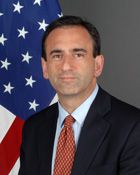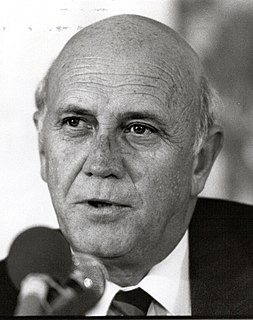A Quote by Joe Kaeser
If the world believes that Iran doesn't play by the rules and imposes sanctions, then we'll follow them whether we have an opinion about it or not.
Related Quotes
When it comes to preventing Iran from obtaining a nuclear weapon, I will take no options off the table. ... That includes all elements of American power: a political effort aimed at isolating Iran, a diplomatic effort to sustain our coalition and ensure that the Iranian program is monitored, an economic effort that imposes crippling sanctions and, yes, a military effort to be prepared for any contingency.
Sanctions did indeed help to bring Iran to the negotiating table. But sanctions did not stop the advance of Iran's nuclear program. Negotiations have done that, and it is in our interest not to deny ourselves the chance to achieve a long-term, comprehensive solution that would deny Iran a nuclear weapon.
Israel's discourse with the United States on the subject of Iran's nuclear project is more significant, and more fraught, than it is with Europe. The U.S. has made efforts to stiffen sanctions against Iran and to mobilize countries like Russia and China to apply sanctions in exchange for substantial American concessions.
Everything we've done has been designed to make sure that we address that number one priority. That's what the sanctions regime was all about. That's how we were able to mobilize the international community, including some folks that we are not particularly close to, to abide by these sanctions. That's how these crippling sanctions came about, was because we [USA] were able to gain global consensus that Iran having a nuclear weapon would be a problem for everybody.
We got the Iran sanctions done. We got an agreement by Russia to allow us to use Afghanistan to transit supplies for our forces. We got a Security Council resolution on Libya. We got Russia into the WTO to bring in to it a rules-based trading system. All of those things were in our interest. The point is not whether we should work with Russia. The point is whether we should sacrifice other important interests to do so.
In my opinion, the continued popularity of these gross distortions of Iran in the U.S. seems to reveal more about certain aspects of America than about Iran. It seems that the popularity of these memoirs is largely due to the fact that, while claiming to do the opposite, they regularly reinforce the dominant representations of Iran in America by constructing an exotic, backward, and barbaric Iran principally based on U.S. archives.
Sanctions kept us on our toes, it made us realize that we were drifting into a situation of growing isolation so I wouldn't go as far as to say sanctions didn't play a role but if I were to put on a scale, the issues of conscience played a much greater role than the sanctions. We could have withstood sanctions for many more years. We became experts in circumventing sanctions... So sanctions played a role but it wasn't the major role.
If Donald Trump dismantles the agreement [the "Iran nuclear deal"] won by President Barack Obama with President Hassan Rouhani and the Iranian government and people: If he dismantles that, and puts greater sanctions on Iran, then we are leading to another war; another war inspired by Israel, another war that will bring China into war, Russia into war, Europe into war. And the Western world, in this war, will be taken completely down, and a whole new world is on the horizon.































